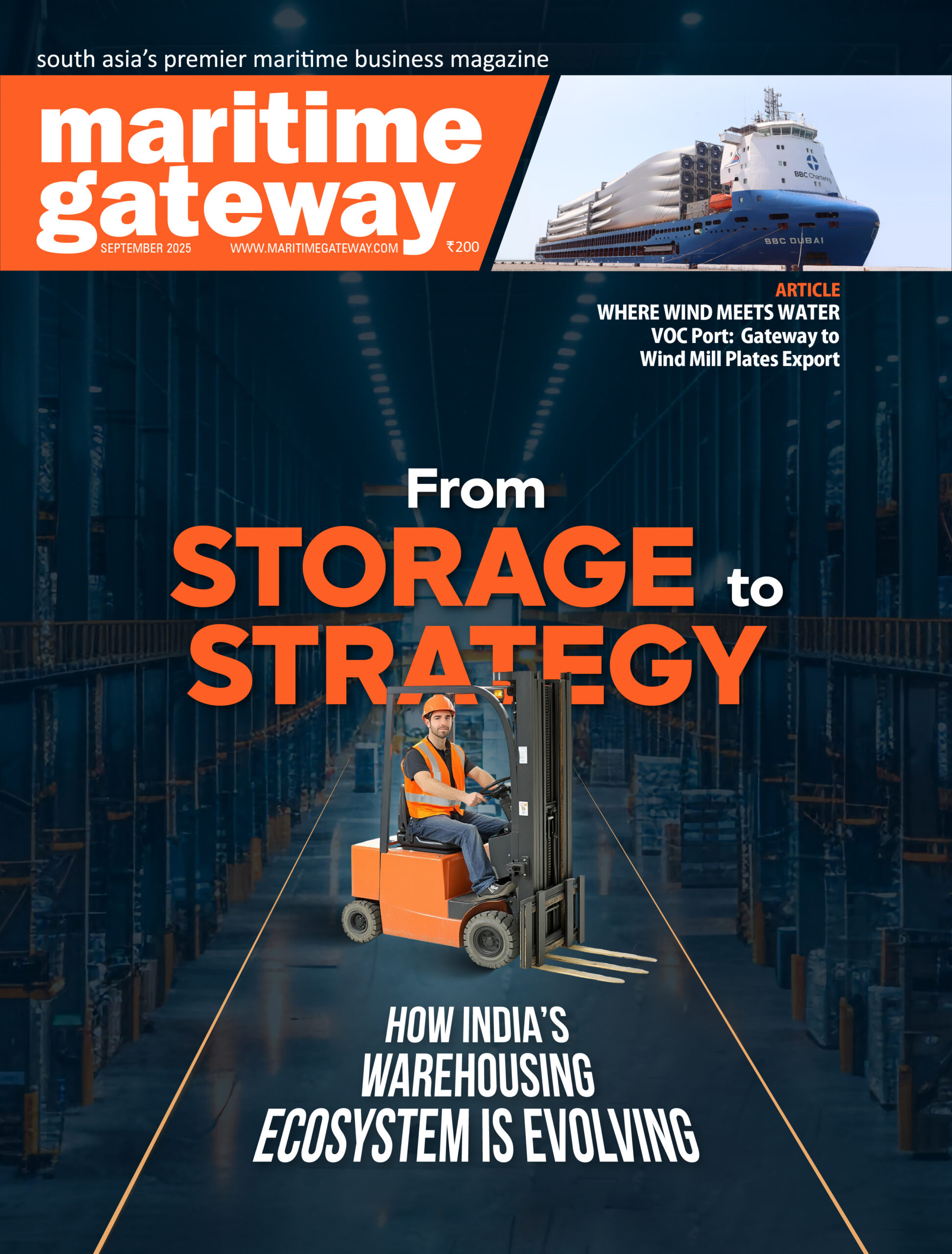As the shipping industry confronts its most complex decade yet – with decarbonisation, digital transformation and regulatory upheaval all accelerating – leaders are being forced to rethink the fundamentals of their business. For global professional services firm PwC, that challenge presents both a mandate and an opportunity: to help clients sail through this transition not only with compliance in mind, but also strategic clarity and operational foresight.
Turbulent times, hidden opportunities
“The biggest challenge our clients face today is uncertainty,” said Alexandersen, Head of Shipping and Offshore at PwC Norway. “From ESG expectations and capital allocation to regulatory change and digital transformation, it’s all connected. Add to that a backdrop of geopolitical tensions, trade disruption and volatile energy markets, and the stakes become even higher. But for those who act decisively, these disruptions can also become powerful tailwinds.”
Socrates Leptos-Bourgi, PwC’s Global Shipping & Ports Leader based in Athens, agreed. “There’s no one-size-fits-all solution. For example, smaller, cost-sensitive players are understandably cautious about adopting new technologies. Larger ones can experiment. But across the board, companies need flexible, bespoke strategies – not off-the-shelf fixes.”
Mapping the cost of green transport
PwC’s commitment to tailored, actionable insights is exemplified in the latest Net Zero Shipping Study it is working on. The study analyses how the price of everyday goods is affected by switching to sustainable fuels – with some surprising conclusions.
“We’re looking at the actual impact on various transported products – for example cars, washing machines or smartphones,” said Juergen Peterseim, Director, Sustainability Services at PwC Germany in Berlin. “In many cases, the cost increase to the end product from greener shipping is marginal – 0.1% or less. That tells us companies don’t need to wait for a perfect future to start decarbonising. They can act now in close cooperation with their customers, starting with the goods and routes where the economics already stack up.”
The study also explores which routes, vessel types and fuel mixes deliver the best carbon bang for the buck. “We’re modelling decarbonisation pathways, infrastructure needs and what’s actually achievable by 2030 or 2050,” he added. “Ultimately, we want to help shipping clients make smart, data-driven decisions – not just react to compliance pressures.”
And that work has broader implications beyond shipping. “Whether it’s automotive, electronics or consumer goods, companies need to understand how green transport impacts their own Scope 3 emissions and pricing models,” Peterseim noted. “Our work helps connect those dots – not just for shipowners, but across the value chain.”
Local markets, global pressures
From Oslo to Piraeus, regional dynamics shape how clients engage with transformation. In Norway, Alexandersen sees a highly educated and cost-conscious client base grappling with EU regulations like FuelEU Maritime and the EU ETS. “Whether you’re a ferry operator exploring electrification or a tanker owner navigating emissions costs at EU ports, the questions are different – and so are the answers.”
In Greece, Leptos-Bourgi also pointed to the burden of compliance. “New regulations are adding layers of cost and complexity. Smaller companies struggle to maintain scale and adopt new tools. We’re seeing increased consolidation as a survival strategy.”
In Europe generally, Peterseim noted a growing focus on lifecycle carbon footprints and fuel flexibility. “Our clients are asking: How do I make my fleet future-ready without locking into the wrong fuel path? You can’t commit to just ammonia or methanol. You need to prepare for multiple options – and model your routes accordingly.”
A multifaceted offering
While PwC built its reputation on audit, tax and assurance, all three partners emphasise how its value proposition has expanded as a multidisciplinary advising powerhouse.
“Today, we help shipping clients with ESG strategy, decarbonisation planning, digital transformation, cyber risk – the full spectrum,” said Leptos-Bourgi. “That includes us hiring people from within the industry who understand the operational realities.”
Digital transformation, he added, comes with its own challenges. “It’s not just about adopting AI platforms or optimisation tools. It requires cultural change – and that’s where leadership, training and good advisors come in.”
Peterseim agreed. “We’re bringing in mechanical engineers, chemists, fuel experts – because clients expect deep, technical expertise. It’s not enough to offer high-level advice anymore. They want people who know their business.”
Trust remains the foundation, Alexandersen added. “Whether it’s financial statements, ESG disclosures or cyber preparedness, clients come to us because they trust us to get it right.”
Why Nor-Shipping matters
For PwC, returning as a strategic partner of Nor-Shipping isn’t just a brand exercise. It’s a reflection of their long-term commitment to the industry.
“Nor-Shipping is where the right conversations happen,” said Alexandersen. “It’s where we can share insights, listen to the market and be part of a collaborative ecosystem.”
Leptos-Bourgi echoed that view. “Nobody has all the answers. It’s only by working across sectors, geographies and disciplines that we find real solutions. That’s why events like Nor-Shipping matter – they bring the ecosystem together.”
Looking ahead
When asked for a single piece of advice for shipping leaders preparing for 2030, all three emphasised the same theme: flexibility.
“Be ready to adapt,” said Peterseim. “Your fuel strategy, your supply chain engagement, your vessel design – it all has to stay agile. Customers will increasingly demand greener solutions. If you can’t deliver, they’ll look elsewhere.”
Leptos-Bourgi put it more bluntly: “Expect the unexpected. Build resilience. That’s been the lesson since COVID, and it’s not going away.”
For Alexandersen, the need for trusted advisors has never been clearer. “Leading a shipping company today is harder than ever. Strategic decisions carry more weight – and more risk. That’s why collaboration matters. That’s why we’re here.”
At Nor-Shipping 2025, PwC isn’t just showing up – it’s standing shoulder-to-shoulder with an industry at a crossroads. With deep technical insight, operational fluency and global reach, PwC is helping maritime leaders not only weather uncertainty — but turn it into momentum.









